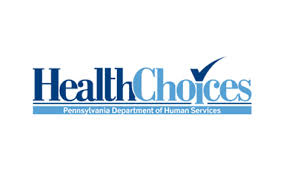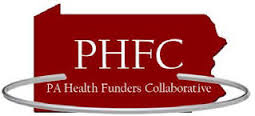Pennsylvania Health Law Project Newsletter
The Pennsylvania Health Law Project has published its February 2017 newsletter.
 Included in this edition are stories about:
Included in this edition are stories about:
- the potential implications of turning Medicaid into a block grant program
- the governor’s proposed FY 2018 budget
- a new federal requirement that hospitals must inform Medicare patients if they are designated as hospitalized under “observation status”
- counseling services available through PA LINKs
Find the latest edition of PA Health Law News here.
 When losing bidders protested the contracts awarded based on the state’s original request for proposals and took the state to court, the state threw out all the bids and cast aside its decision and started the process all over again, issuing a new request for proposals last year. When the state announced new awards in January the losing bidders again protested, this time alleging “irregularities” in the decision-making process. With the renewed threat of litigation, the planned implementation of the new contracts on June 1 now appears to be in jeopardy.
When losing bidders protested the contracts awarded based on the state’s original request for proposals and took the state to court, the state threw out all the bids and cast aside its decision and started the process all over again, issuing a new request for proposals last year. When the state announced new awards in January the losing bidders again protested, this time alleging “irregularities” in the decision-making process. With the renewed threat of litigation, the planned implementation of the new contracts on June 1 now appears to be in jeopardy. The Kaiser Family Foundation has just created a new tool that enables users to compare and contrast all of the current repeal and replace proposals: you pick the proposals you want to compare and you select the aspects of those proposals that interest you.
The Kaiser Family Foundation has just created a new tool that enables users to compare and contrast all of the current repeal and replace proposals: you pick the proposals you want to compare and you select the aspects of those proposals that interest you. In a new report, the Pennsylvania Health Funders Collaborative attempts to answer that question, offering projections on the impact of the 2010 health reform’s repeal on jobs, prescription drug coverage for seniors, insurance status for low-income Pennsylvanians, hospitals, and the state’s economy as a whole.
In a new report, the Pennsylvania Health Funders Collaborative attempts to answer that question, offering projections on the impact of the 2010 health reform’s repeal on jobs, prescription drug coverage for seniors, insurance status for low-income Pennsylvanians, hospitals, and the state’s economy as a whole. With policy-makers in Washington considering some changes, and possibly major changes, in the state/federal Medicaid partnership, the Health Affairs Blog has taken a look at some of the options those policy-makers might consider.
With policy-makers in Washington considering some changes, and possibly major changes, in the state/federal Medicaid partnership, the Health Affairs Blog has taken a look at some of the options those policy-makers might consider. If the Affordable Care Act, or Obamacare, is repealed and not replaced, over a million Pennsylvanians could lose access to health care and tens of thousands of people – people who are our friends, our neighbors, and our family members that are currently receiving treatment for a substance use disorder – would lose insurance coverage and no longer be able to afford their treatment.
If the Affordable Care Act, or Obamacare, is repealed and not replaced, over a million Pennsylvanians could lose access to health care and tens of thousands of people – people who are our friends, our neighbors, and our family members that are currently receiving treatment for a substance use disorder – would lose insurance coverage and no longer be able to afford their treatment.
 The Safety-Net Association of Pennsylvania has prepared a detailed review of those provisions. Officials of safety-net hospitals who would like to receive a copy of this memo may request one by using the “contact us” link on the upper right-hand corner of this screen.
The Safety-Net Association of Pennsylvania has prepared a detailed review of those provisions. Officials of safety-net hospitals who would like to receive a copy of this memo may request one by using the “contact us” link on the upper right-hand corner of this screen.